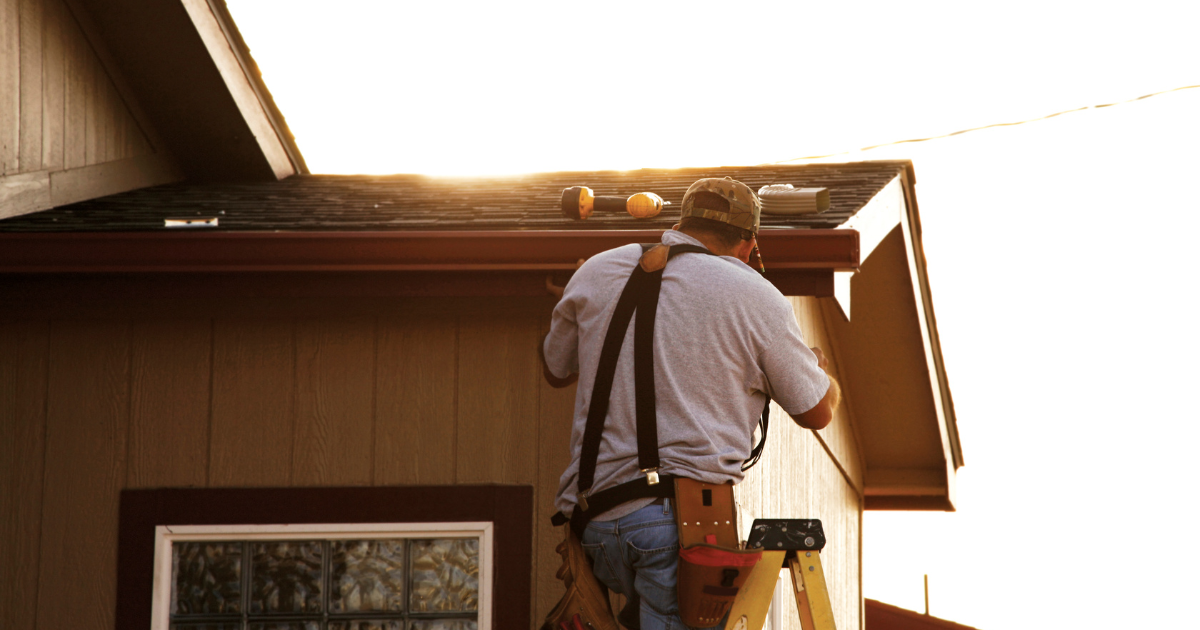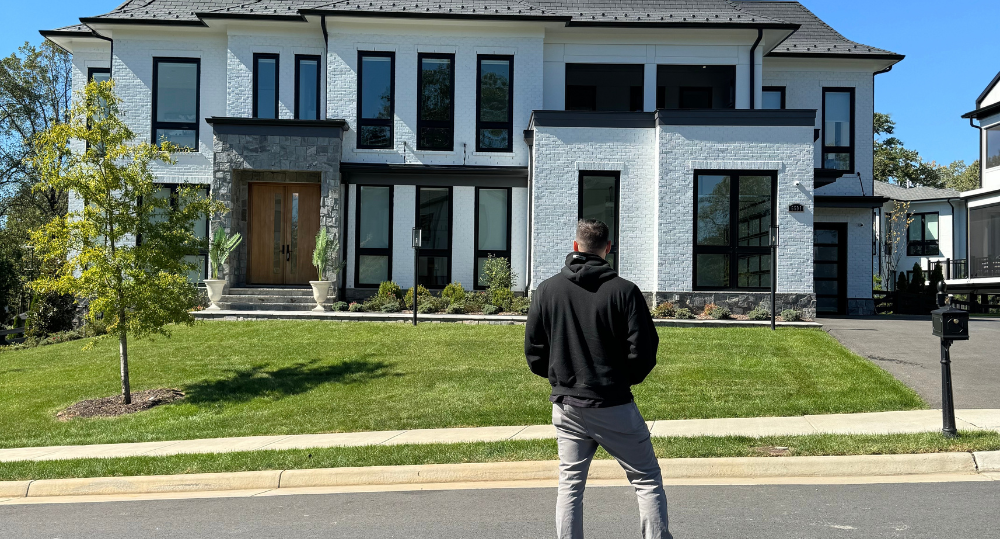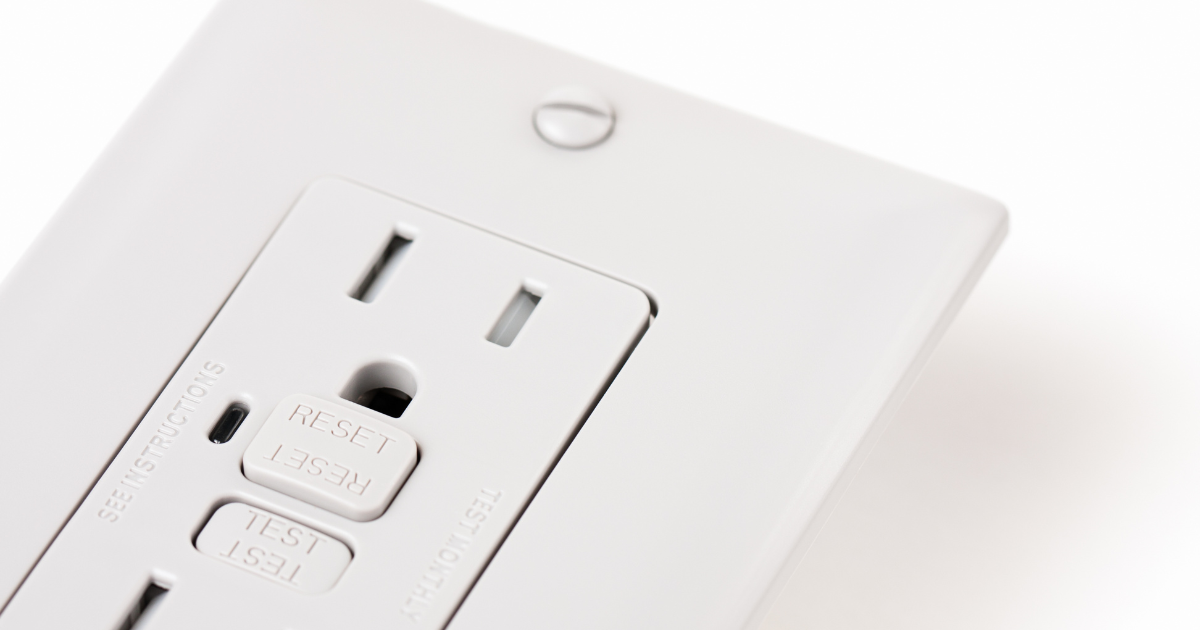Rain gutters are an often-overlooked part of home maintenance. While they may not seem important, they can actually be essential to protecting your property from water damage caused by heavy rainfall or clogged gutters. But should you put gutters all around your house? Let’s take a closer look at the pros and cons of installing a gutter system around your home.
The Home Inspection Comment Explained
As home inspectors we often may make the inspection comment that gutters are missing, damaged or needing corrective action. A lot of these comments are a maintenance suggestion for the home but when it comes to gutter repairs or installations its essential you hire a contractor. Unfortunately, installing gutters is no DIY home project; it requires special tools, experience and materials to ensure they remain safe and secure. You can always reach out to your home inspector for recommendations on local contractors to use.
Missing Gutters – In many cases this comment is made to notify the client about additional gutters that should be installed or that the home has no gutters installed. A good indicator of areas of the home that need gutters will have an existing or developing drip line next to the foundation of the home.
Loose Gutters – Often gutters can become detached from the fascia boards of the home and will need to be refastened more securely. This defect can also affect the gutters pitch or functionality. A properly pitched gutter will drain water towards the downspouts. There also may be sections where the gutter is too loose and may pose an overhead falling object safety concern.
Gutter Leakage – Most metallic materials eventually rust and corrode, or gutters can leak over time from other causes. These leaks prevent the downspout from pulling water away from the home basically defeat the purpose of the gutters to keep excessive moisture from affecting the soil and foundation.
Improperly Sloped Gutter – Gutters divert water from the roof with gravity, often when the inspector see\’s standing water inside the gutter system it indicates that the gutters pitch is not high enough to send the water to the nearest downspout. This water over a very, very, long term can rust metal gutters. This issue can be resolved with adjusting the pitch at the fasteners that hold the gutter system to the fascia.
Debris In Gutters – Depending on which type of vegetation is near your home, leaves, pine straw and various other items can fill gutters with debris which can prevent water from moving down to the downspout or clog the gutters. It\’s recommended that you clean your gutters on a regular basis as needed. Remember anytime you\’re working from heights that you use proper ladder safety or hire a handyman or professional to address this.
Downspout Need Extension – This is probably the most common defect you will see on a home inspection report. Downspouts are at the ends of gutter systems, but we often see the downspout not extending out far enough from the home\’s foundation. Most home inspectors like to see 4-6 ft of distance from the home to ensure water is draining away from the home into the yard. As mentioned before, we want to make sure water doesn\’t sit close to the foundation for extended periods of time.
Gutter Systems Explained in 3 Easy Steps
1. A gutter system is a great way to protect your home from water damage.
Water is one of the most damaging things that can happen to your home. It can cause structural damage, rot, and mold. A gutter system can help to protect your home from water damage by redirecting rainwater away from your foundation and into a drain or other drainage system.
2. Gutter systems can be customized to fit the specific needs of your home.
There are a variety of different types of gutter systems available on the market, so you can choose the one that best fits the needs of your home. For example, if you live in an area with a lot of trees, you may want to consider a gutter guard system to keep leaves and other debris out of your gutters.
3. Gutter systems require little maintenance once they are installed.
Once your gutter system is installed, it will require little maintenance. You will need to occasionally check for clogs and clean out any debris that has accumulated in the gutters. However, overall, a gutter system is a low-maintenance way to protect your home from water damage.
The Benefits of Installing Gutters All Around Your Home
One of the biggest benefits to having gutters on all sides of your home is that it redirects water away from it. This is especially important in areas with high rainfall, like Florida. Without gutters, rainwater can pool around your foundation and cause cracks or even flooding in your basement or crawlspace. By directing water off the roof and away from your house, you can avoid costly repairs and maintenance down the line. Additionally, having gutters along all sides of the house also helps prevent mold growth as well as soil erosion in landscaping near the house.
Gutters also provide protection from debris that could otherwise damage your roof over time. When leaves and twigs accumulate on the roof without being caught by a gutter system, they can break down and leave behind residue that blocks drains and prevents rainwater from flowing properly off the roof. That’s why having a fully functioning gutter system is so important for keeping your home safe from water damage—especially during storms.
The Downsides of Installing Gutters All Around Your House
One potential downside to installing gutters all around your home is cost—installing new gutters typically costs a few thousand dollars depending on how many stories are in your house, as well as which type of material you use for them (aluminum vs. vinyl). Additionally, if you live in an area with cold winters, there’s also the potential for ice dams to form in some areas where snow accumulates—which could potentially lead to more damage if left unchecked over time. Finally, since most types of gutters require routine maintenance like cleaning out debris every few months, this added responsibility might not be ideal for some homeowners who don’t want to bother with additional chores during their free time.

The Types of Gutters Available
Installing rain gutters is an important part of protecting your home and keeping it in top condition. Homeowners have many choices when it comes to the types of gutters they can select.
- Wood gutters, while they may be decorative with woodwork-like designs, are less common due to their lower durability.
- Vinyl gutters are becoming more popular as a budget-friendly option that doesn’t require much upkeep.
- Aluminum, copper, and steel gutters present different aesthetics and longevity rates, allowing homeowners to customize based on their needs and overall look for the home.
There’s no fixed standard for what type of gutter you should install – it all depends on your preferences and budget. So, make sure to do your research before choosing the right option for your home!
Why Gutters Are Important
Maintaining the gutters around your home is essential for preventing water damage to the foundation. Installing a gutter system will re-route rainwater away from your roof, and towards the soil away from your home. This ensures that no water sits near or on the foundation of your house, which can lead to costly structural damage if not properly taken care of. While it may require some upkeep, investing in proper gutters is an important part of protecting your home from water damage.
Gutters are a great way to help maintain the integrity of your home. Not only do they help keep water away from the foundation by redirecting it away, but they also reduce soil erosion and increase the aesthetic value as well as home value. With gutter systems installed, you can avoid landscape damage that\’s caused by stream runoff or pooling water around your property. Plus, stylish new gutters greatly improve the look of your roof line and add a nice finishing touch to any property. Protecting the integrity and beauty of your house is a wise choice – gutters can definitely help achieve this.
The Conclusion About Gutters
Overall, installing a full gutter system around your house is definitely worth considering if you live in an area with frequent heavy rainfall like Florida does—as long as you’re prepared for any associated costs or maintenance needs that come along with it! Gutters help protect against flooding, soil erosion, mold growth, and other forms of water damage—all while providing an aesthetically pleasing addition to any exterior home design! Ultimately only you can decide whether or not installing new gutters around your house is worth it for you personally; however if taken care properly they are sure to add value to any property!









2 Responses
Thanks for helping me understand how important it is to have gutter system maintenance services so that the foundation will not get damaged by water. I have to hire contractors specializing in that area to get my home checked after three years of living here. Hopefully, we are not too late, and a minor repair is needed if there are issues because we never thought about this before.
It got me when you said that vinyl gutters are popular because they are affordable and maintenance-free. I will consider that material once I hire a rain gutter specialist, but I will ask them first to know if they recommend it. It would probably matter to consider the weather conditions and climate here in our area before we make a final decision.